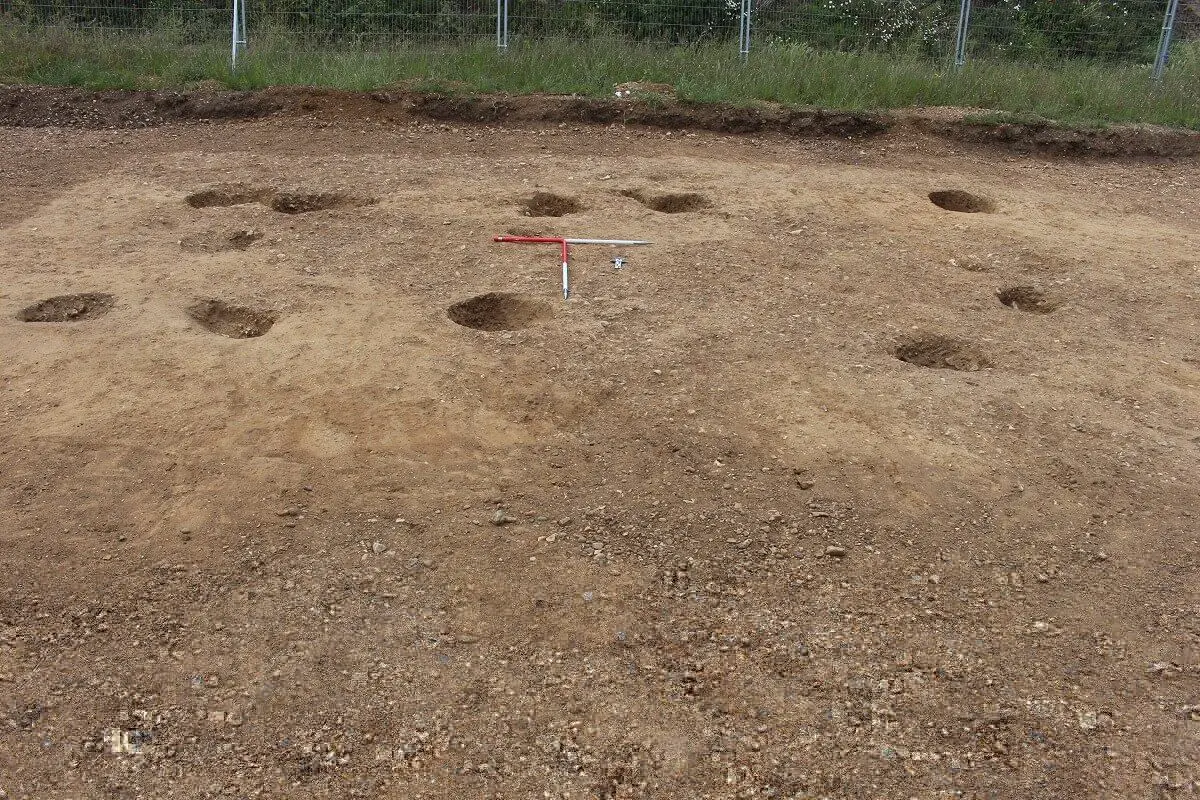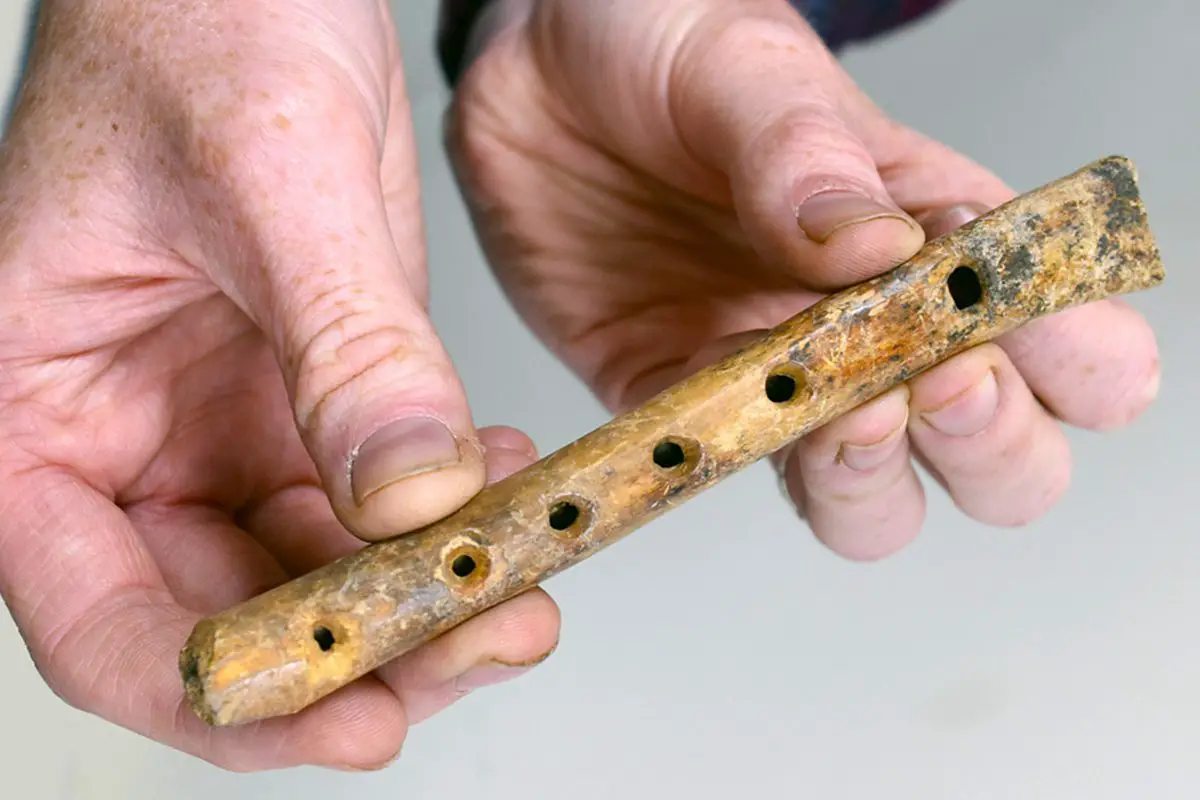Archaeologists from Cotswold Archaeology have discovered a rare bone flute during excavations in Herne Bay, located in Kent, England.
The team were excavating a 61-hectare site in preparation for planned developments south of Hillborough. Trenching conducted in 2021 found features that date from the Late Bronze Age and Roman periods, and further evidence of medieval activity.
Excavations in 2022 have revealed ditches and pits, with spot dating of pottery suggesting activity from the Middle–Late Bronze Age through to the Roman period, probably relating to a managed agricultural landscape with a nearby settlement.
Another area of the site contains postholes of a possible rectangular structure, and evidence of Anglo-Saxon/early medieval occupation that is indicated by pits and postholes (none of which form a discernible structure). The team has also identified two ditches that form an undated large rectilinear enclosure, although the function is yet to be determined.

While excavating a medieval pit within the enclosure, archaeologists found a rare bone flute, believed to be a ‘fipple flute’, a class of instrument that includes the modern-day recorder.
The flute has been skilfully carved from a sheep/goat tibia shaft and has five finger holes along its top and a thumb hole underneath. The researchers suggest that the flute may be missing some form of mouthpiece, but it is otherwise complete and very well preserved.
Medieval pottery within the pit has been dated from the 12th to 15th century, which may be an indicator for dating the flute until further studies are conducted.
A similar example was discovered in 1964 at Keynsham Abbey in Somerset, which was associated with a mid-14th century coin. Further examples are found across Europe, including in England, from: Winchester, Hampshire; Flaxengate, Lincoln; Coppergate, York; and a pair of reed pipes from Ipswich, Suffolk.
Header Image Credit : Cotswold Archaeology





